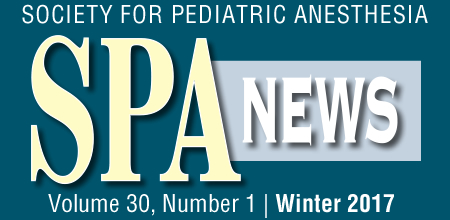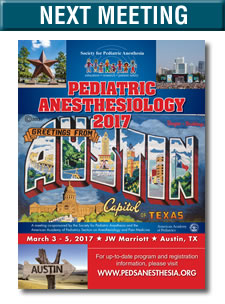Annual Meeting Reviews
Session I: Immune System: Too Much, Too Little
Reviewed by RJ Ramamurthi, MD, FRCA
Stanford University
What a great way to start the 30th Annual Meeting – an overview on immunology, by a chosen panel of experts in the field. Prof. John Routes (Medical College of Wisconsin) gave a primer on Clinical Immunology, aptly titled "Practical Immunology 101".
He started his talk describing the broader types of immune response, namely innate and adaptive, detailing the components of each pathway. Subsequently he dwelled in detail on the work-ups needed to identify the function of each of these components. Examples of actual case descriptions was the main aspect of his talk that helped concretize the understanding of pathological immune states.
The second presentation was from Prof. Robert Brown (Johns Hopkins) on the pathophysiology and management of anaphylaxis under anesthesia. He outlined the early and delayed release of mediators of anaphylaxis, stressed the paucity of signs and symptom under general anesthesia and the difficulty in diagnosing the causative agent under anesthesia.
He also explained the variation in ‘common antigens’ under anesthesia across continents – muscle relaxants are the most common offending agents in Europe, whilst antibiotics are the lead offenders in the USA. This may be attributable to the use of cough syrups containing pholcodeine in Europe, which shares the allergenic potential of muscle relaxants.
Next, Dr. Juan Cotta (MD Anderson Cancer Center) gave an excellent overview of immunomodulation under anesthesia. He presented studies (mostly in adult populations, with minimal pediatric evidence), that show the effects of surgery, stress, catecholamines, opioids and regional anesthesia on Natural Killer cell function.
The final presentation was by Dr. Patrick Fernandez (Children’s Hospital, Colorado) who described in detail the nine common food allergens, with a focus on egg allergy and the safety of propofol use in patients with egg allergy. The interesting point to note is the lack of any caution in the package insert of intralipid which also contains some egg components, whilst the insert in propofol packaging clearly warns against use of propofol in patients allergic to egg.
Audience questions ranged from the utility (no value) of test dosing before antibiotic administration to the controversies around legal implications of black box warnings dictating the medical standard of care. Overall, this session achieved the objective of bringing out the pearls of knowledge of immunology as applied to our practice.





